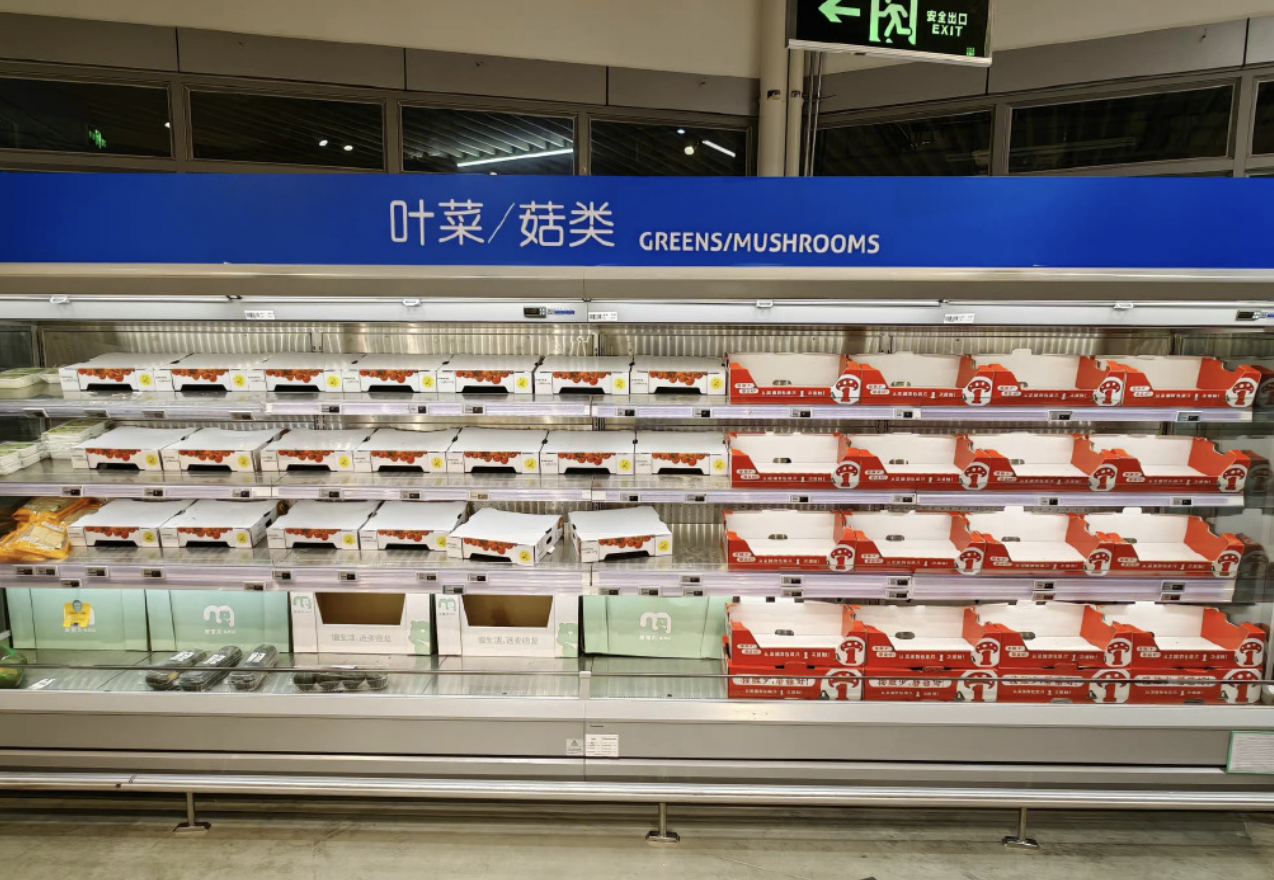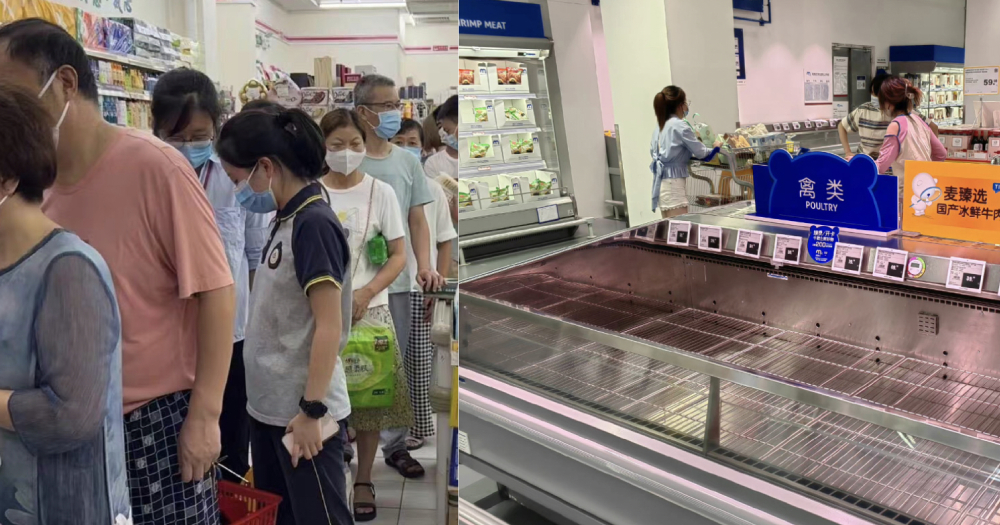Follow us on Telegram for the latest updates: https://t.me/mothershipsg
The megacity of Chengdu in China will go under lockdown, the local government announced in the early morning of Wednesday (Aug. 31), Caixin reported.
Shutting down the city
The lockdown will take effect at 6pm on Thursday (Sep 1). Each household will be allowed to send one person per day to shop for groceries and necessities. Otherwise, no one is allowed to leave their home unless to undergo mass testing, which is carried out till Sunday (Sep. 4).
Residents with emergency medical assistance will also have to get approval from a neighbourhood committee first.
It's not known when the lockdown will be lifted.
The measure came after the city recorded more than 200 new Covid-19 cases in a single day. The total number of Covid-19 infections exceeds 900 so far.
Chengdu is one of the country's largest cities and the fourth most populous city, with around 21.2 million residents in 2021.
It's the largest city to be locked down after Shanghai's contentious two-month lockdown that saw residents complain about a lack of food and a deterioration in mental health after a prolonged lockdown with no end in sight.
While the lockdown has since been lifted, certain controls still remain in the city, such as regular testing in order to use the city's public transportation, according to Bloomberg.
Despite the human cost the lockdown had wrought, however, the city had successfully kept infection rates and the death toll low.
Panic buying before lockdown ensued
Hours before the lockdown measure in Chengdu was announced, local authorities arrested a 37-year-old man on Aug. 29 for spreading falsehoods a few days before, slapping him with 10 days of imprisonment and a RMB1,000 (S$202) fine.
The most ironic thing is that the lockdown started right after they detained the guy who warned people of the upcoming lockdown for "spreading rumors". https://t.co/tjc8f8ZIFS pic.twitter.com/RfEQcNPNbB
— Henry Gao (@henrysgao) September 1, 2022
The man, surnamed Xu, had warned others of an impending lockdown, which prompted people to flock to supermarkets to stock up on food, clearing out the shelves as a result.


The Chinese government has continued to implement its zero Covid strategy, despite its human cost.
Reversing this policy is not an option as it would imply that the authorities had been wrong in devising its approach towards managing the pandemic.
Chinese hospitals might also not have the capacity to handle a sudden surge in outbreak should restrictions be lifted, especially in the face of a highly transmissible Omicron subvariant.
The low vaccination rate among the elderly in the country also remains an obstacle to opening up.
Read more
Top image via Weibo
If you like what you read, follow us on Facebook, Instagram, Twitter and Telegram to get the latest updates.
